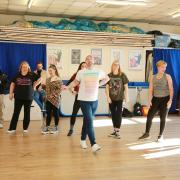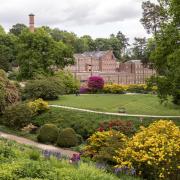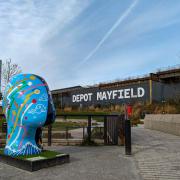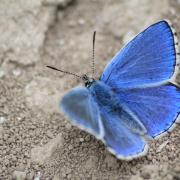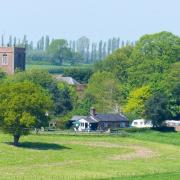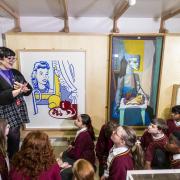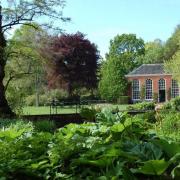10cc’s Graham Gouldman created some fine music at Strawberry Studio in Stockport in 1970s, and lived in Mottram St Andrew. This month he will be honoured in New York
Q. What was life like for you 50 years ago in the Manchester of the beat boom?
A. I left school when I was 17 and had already started playing in semi-professional bands in and around Manchester. But I needed to earn a living, and I got a job in an outfitter’s shop in Salford. I worked there for two years but eventually got the sack because I was having to leave work early to play with the band, and I was arriving late in the morning because we’d got in very late from wherever we were playing. The guy who owned the shop, bless him, did me the biggest favour in the world. My parents weren’t too happy I got the sack, but I was. I knew in my heart I was always going to do music anyway.
I met Harvey Lisberg, who managed me and is still associated with me to this day, who said he would pay me a retainer if I would come and write songs at his office, Kennedy Street Enterprises in Manchester. Within six months, I had a hit. Eric Stewart came in one day and we got on really well, and that started the relationship that finally became 10cc. I already knew Kevin (Godley) and Lol (Creme) who were in different bands and we all used to rehearse at the Jewish Lads’ Brigade in north Manchester.
Q. How did Strawberry Studios in Stockport end up becoming the creative hub where 10cc produced some of the most imaginative pop music ever?
A. The studio was started off by a guy called Peter Tattersall who knew Eric, and Eric asked me if I wanted to become a partner in it, which I did. We did a lot of work with other people before 10cc. Neil Sedaka was one - we did two albums with him. Its reputation grew; it was one of the only really professional studios outside London. When the studio wasn’t working, we’d go in and write songs for our own entertainment. That was the key - that we weren’t doing it for anybody else. Without the studio there would have been no 10cc, there’s no doubt about that.
Q. What are your memories of that four year period, from 1972 to 1976, when 10cc were producing songs such as I’m Not In Love, I’m Mandy Fly Me and Art For Art’s Sake?
A. It was magical. It was four people working on the same team for the same cause. There was a lot of creativity. It was a wonderful period. We couldn’t wait to get into work.
Q. That foursome parted forever when Kevin and Lol began working on other musical projects. Did a golden era finish too soon?
A. It did. Kevin and I still see a lot of each other and discuss this ad nauseam. It’s water under the bridge, but who knows what we could have achieved...but there you are.
Q. Will the four of you ever share a stage again?
A. No, I don’t think it will happen. Some of us have the will to do it, and some of us don’t. It’s a shame. I saw Lol not that long ago. We were rehearsing in the same building next to each other in London. It was really weird because they were playing Rubber Bullets and we were doing Life Is A Minstrone. I had a very nice chat with Lol and it was good to see him.
Q. Some songwriters have songs which they say take on a life of their own, almost as if they can’t believe they wrote them. Ever had that feeling?
A. There are songs that transcend other work you’ve done for some reason. At the time of writing something - say, like I’m Not In Love - you don’t think about anything other than writing it. It’s just another song. But then afterwards when you’re performing it God knows how many years after the record came out, and you’re getting exactly the same response and feeling, almost like spirituality, then it’s other-worldly. These are once-in-a-lifetime songs.




